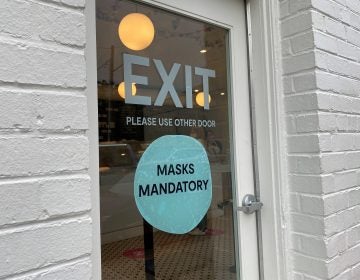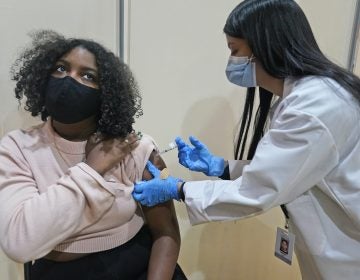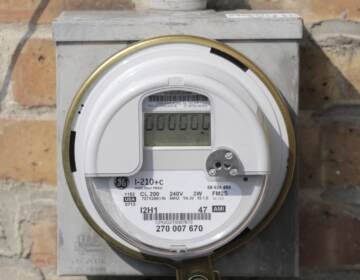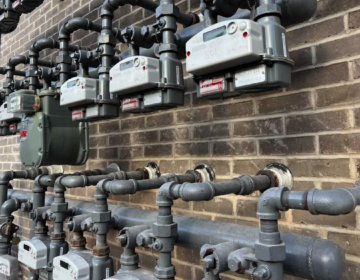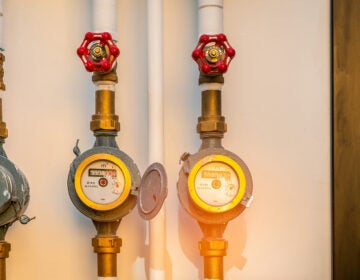Hundreds of thousands of N.J. utility customers facing shut-offs
With few signs the moratorium will be extended before it is set to expire June 30, though, state officials and lawmakers are looking at how to ease the financial pain.
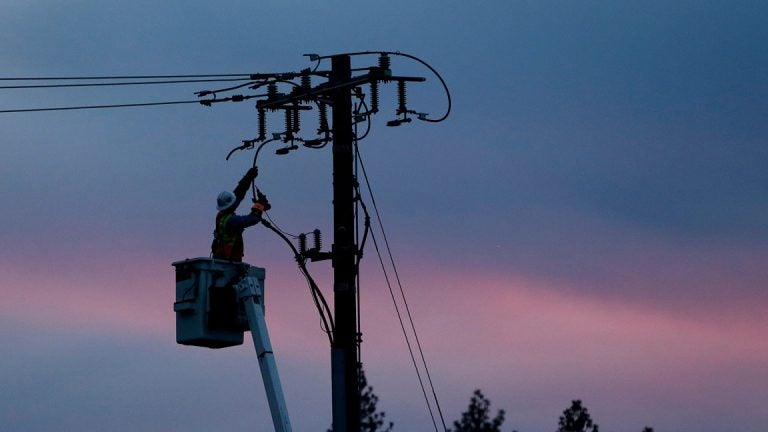
A utility crew member works the lines. (AP Photo/Rich Pedroncelli, File)
This story originally appeared on NJ Spotlight.
By the end of June, more than a half-million customers could face having to pay off their portion of the $650 million owed to New Jersey’s gas, electric and other utilities — debts run up during a pandemic that crashed the economy.
The Murphy administration could decide to extend the moratorium on shut-offs the governor imposed 16 months ago, along with COVID-19 restrictions that led to the closure of thousands of businesses in March 2020, a step that hit those at the lower end of the wage scales especially hard.
With few signs the moratorium will be extended before it is set to expire June 30, though, state officials and lawmakers are looking at how to ease the financial pain for those in arrears, a group that also encompasses higher-income households who had no problems paying their bills until spouses and family members were laid off during the pandemic.
So far, no consensus has been reached on how to help. But in discussions among staff of the New Jersey Board of Public Utilities, utility executives, the state Division of Rate Counsel and other consumer advocates, there seems to be agreement that existing state energy assistance programs ought to be expanded, perhaps by tapping federal funds available through the American Rescue Plan.
In appearances before a legislative budget committee last week, BPU President Joseph Fiordaliso noted there is a relief proceeding currently before the agency, but gave no indication any agreement is forthcoming. If the halt in shut-offs is not extended, he said there would probably be “grace periods’’ for those customers behind in their bills.
Federal dollars could be a big help
Others participating in those discussions were a bit more optimistic. Stefanie Brand, the director of the Division of Rate Counsel, noted there has been a lot of talk about expanding eligibility of existing programs by altering income-eligibility thresholds.
Perhaps the biggest question facing the state is to what degree the federal dollars that have flowed into New Jersey can be used to help customers pay off their bills, if at all. That solution is supported by Brand and the utility companies.
“What I really don’t know, exactly what is the status of the federal money?’’ asked Brand, referring to the more than $6 billion the state received last week under the latest COVID-19 relief package. “There should be some federal assistance available for some of these programs.’’
In the wake of the pandemic, the utilities have undertaken numerous steps to engage customers on their bills and understand assistance programs available to them, according to Tom Churchelow, executive director of the New Jersey Utilities Association.
“While that continues, we also hope the state will make full use of available federal dollars for customer assistance programs, including direct appropriation to organizations like New Jersey Shares and allocation of American Rescue Plan and CARES Act dollars for low- and moderate-income programs,’’ he said. New Jersey Shares is a program that helps customers pay utility bills.
Some organizations, such as AARP, have asked the administration to extend the June 30 moratorium. Even if that does not happen, Evelyn Liebman, associate director of AARP, noted the board staff has indicated they will take action before June 30. “And we think they need to do,’’ she said.
According to information submitted to the Office of Legislative Services by the BPU, the amount owed to utility service providers as of March 2021 on accounts that were 60 days in arrears was $570,423,397. That included 593,726 residential and non-residential accounts.
That figure does not include approximately $75,500,000 in arrearages reported for residential and non-residential customers of telecommunication and cable companies, according to OLS. Based on incomplete data submitted to the BPU, roughly 286,000 residential customers are in arrears.
WHYY is your source for fact-based, in-depth journalism and information. As a nonprofit organization, we rely on financial support from readers like you. Please give today.


